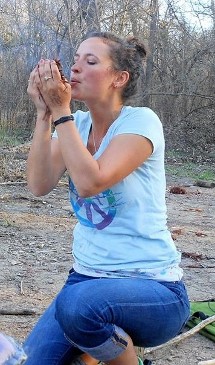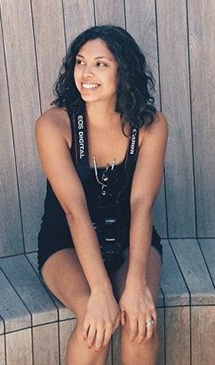Wilderness Awareness School: Professional development for alternative educators
/
This interview is adapted from one that recently appeared on Dandelion, Breana Sylvester’s blog about her family’s adventures in exploring educational alternatives. Thanks for sharing it with us, Breana! You can meet all three of the fiercely committed educators involved in the interview at this Saturday’s Alternative School Fair.
Ever wonder what your teachers did over the summer? Chances are, whether you went to public or private school, large or small, your teachers did some sort of professional development to become better at what they do. That might mean they took classes at a local university or attended a conference, or worked with other teachers to learn from experts in their field. I know teacher learning is very important, but I wondered, just as each alternative school tends to have its own style, does teacher learning take on its own flair in an alternative setting?
Laura and Michelle, two Austin alt educators, went to Wilderness Awareness School to learn the Art of Mentoring from experts. Instead of sitting in a classroom all day, though, they made the great outdoors their classroom, learned through experience, and brought home lessons in becoming better teachers and happier individuals. They shared experiences neither is likely to forget!
 Michelle Carbone, youth programs coordinator and instructor, Earth Native Wilderness School, an outdoor education program. Job description: Facilitating the building of connections with nature through games and songs, as well as teaching survival skills (e.g., friction fires, learning about edible plants). Background: Studied Environmental Affairs, worked at Keep Milwaukee Beautiful and Outdoor Education programs in Texas and Ohio.
Michelle Carbone, youth programs coordinator and instructor, Earth Native Wilderness School, an outdoor education program. Job description: Facilitating the building of connections with nature through games and songs, as well as teaching survival skills (e.g., friction fires, learning about edible plants). Background: Studied Environmental Affairs, worked at Keep Milwaukee Beautiful and Outdoor Education programs in Texas and Ohio.
 Laura Ruiz Brennand, teacher, Radicle Roots Community School-house, an experiential democratic school. Job description: Mentoring child learning based on play, place, projects, and inspiration; balancing class lessons and self-directed time, with a focus on sustainability and connecting to nature. Background: B.A. and Masters from Texas State; taught 4th grade in Kyle, Texas, before learning about alternative schooling opportunities through Caitlin Macklin.
Laura Ruiz Brennand, teacher, Radicle Roots Community School-house, an experiential democratic school. Job description: Mentoring child learning based on play, place, projects, and inspiration; balancing class lessons and self-directed time, with a focus on sustainability and connecting to nature. Background: B.A. and Masters from Texas State; taught 4th grade in Kyle, Texas, before learning about alternative schooling opportunities through Caitlin Macklin.
An interesting side note: Michelle and Laura did not know each other prior to this experience. Even though Radicle Roots was planning on working with Earth Native in the fall, these two educators hadn’t yet met. They were on the same plane and saw each other with their gear and wondered, but when they got to Wilderness Awareness School, they ended up together in the Chipmunk Clan. So it was quite a way to meet!
I had some questions for Michelle and Laura about their experience, and I had so much fun learning about their learning that I wanted to share it. So here’s my interview with these two amazing teachers!
* * *
What appealed to you about Coyote Mentoring before you went?
Laura: Wilderness awareness school is a model school for Radicle Roots, along with the Albany Free School. Caitlin [the school’s founder] had attended the Art of Mentoring program two summers before, and so she knew a lot about it. She talked to me about the 8 shields and the different philosophies. She gave me this big textbook, and it was really dense. She’s like, “Yeah, you’ve just got to go. You can’t read about it, you’ve just got to experience it.” This past summer we were able to afford to go. She wanted me to experience what she experienced, so that way our visions could be more connected. When I got there I was like, “YES! This is what she was talking about.”
Michelle: Dave Scott, the founder of Earth Native, he got his start at Wilderness Awareness School, so it is the model we look to for Earth Native. He went there and learned and he was very involved and then he stayed and taught there. It was his inspiration for starting Earth Native. [My experience with] outdoor education is definitely less structured than classroom education, but it’s somewhere in between a Wilderness Awareness model and public school. I’m still trying to figure out where I can use my experience as an outdoor educator. Going to Earth Native was very important for me to experience. I was teaching summer camp this past summer, and I threw myself into that, and part of me didn’t feel ready to go and have another experience, but it was the most rejuvenating experience I have ever had. Everyone should go, it’s magical.
From your perspective, based on your experience, what is the philosophy of the Art of Mentoring program?
Laura: Finding your role as a mentor, getting to know your students really well as a mentor, and figuring out where your students are using the 8 shields, and then you get to help them grow. For example, if a student is highly motivated to a project but they’re not very organized, you can help them in that way. Or if they’re struggling with motivation, you can come in as the coyote trickster and get them super motivated by being goofy and silly and bringing joy to the process, and also remembering they’re kids and they have child passions in them like playing and singing and storytelling, and remembering that adults need to play as well. When you’re mentoring a student, when an opportunity arises, you find those opportunities and you figure out what kind of teaching style you want to use. If they’re ready for lots of information, you can use a more didactic style; if they’re curious, you can be more inquiry-based.
Out of everything you learned from the program, is there something that you either immediately wanted to share, or while you were learning you made a connection to how you could have used it in the past?
Michelle: My biggest struggle has been setting boundaries guidelines, because the idea of outdoor education is letting a lot of that go—so knowing when to intervene and when you just need to let the kid figure out their own boundaries through natural consequences. For me that’s really hard. When I see a kid struggling, my instinct is to help them and do whatever I can to keep them from harm. Trying to find that balance is really hard, so going into it that’s what I wanted to figure out. Students are often asking for something, like, “Hey, I’m really thirsty, and I have been running around and I’m dehydrated and now I don’t want to drink water, so I really need you to make me drink water.” Being able to go outside your comfort zone a little is important. I spend so much time doing trickster, and being goofy and crazy. I realize I need to be a little more didactic or use the art of questioning. It was humbling, and made me realize I had a lot to learn. Maybe children respond in another way, and not always the way I tend to do things. Learning that I need to get to know my kids on another level, it was really helpful.
Laura: I think the most beautiful thing about the whole process was that there were all kinds of people coming together. We all are naturalists, and all work with kids, no program was alike, and just knowing that all these people are coming together for the same things and then dispersing back to our homes to spread the warmth and nurturing we learned there was really amazing. I am really looking forward to storytelling. There was this amazing storyteller. He was a performer, and the way he told stories was really artful and inspiring. He brought in these characters that were really interesting, and so real. He brought lots of movements; his body was so dynamic. I want to do that, I want to be a better storyteller. He was so great that you realize the possibilities of storytelling are endless. I felt like I didn’t have stories to tell, but he mentioned that everyone has their own stories to tell. Use your own life experience, and stories will come to you; everyone has something to teach. I am really excited about using the different teaching methods as they arise, especially the trickster, because I think that is my discomfort zone. Thinking about putting on a costume or a mask and then coming into a character, it sounds so fun. I think I’m going to be a raccoon. I’m going to put on a mask and become a raccoon.

What was something about the experience that surprised you, that you didn’t expect going in?
Laura: I was surprised by how much everyone let themselves be themselves, even in the mornings at 8:00 a.m., when we were all pretending to be penguins or salmon. Everyone got into it and was so open to the program. There were some pretty emotional experiences for some people, because it was such a safe environment. Everyone was really supportive. It was amazing to hear 30 adults singing these songs. We learned a lot of songs. I sing them in the shower, on my bike, on my walk. We wrote them all down. It was so beautiful out there, incredibly beautiful, and the connection with the land that everyone within the community had was also really beautiful.
Michelle: I met someone there, and he was a quieter individual. I could feel him watching me sometimes, and after a while he approached me. He said, “I don’t want to infringe upon who you are and what you’re doing, but I noticed you’re constantly apologizing for who you are and what you’re doing.” I do that. He challenged me that every time I apologized I had to say something nice about myself out loud. To me that felt gross, it was scary and uncomfortable, but I did. Since I’ve gotten back I still do it, in my head, and I’ve been really watching that when I do say I’m sorry, I truly am apologetic for my behavior, because I want to work toward being a strong woman. I was going to learn about mentoring, and I didn’t think I was going to have the chance to grow so much in such a small time. Everyone there was so awesome. You could just feel the love, and it was awesome. It was hands-on, experiential education, and I learned so much!
On leaving:
Michelle: At the end we were asked to say goodbye, to leave the space empty and not leave ourselves, and to leave our clan. It was really difficult! So we lay down on the ground with heads touching and made noises. The noises started working together and harmonizing and it ended up feeling sing-song, and then it was beautiful—we all stopped at the same time.
* * *
What a great way to say goodbye to the people, and the place, and the experience. Thank you, Laura and Michelle. I am really excited to have gotten to share some of your experiences with my readers!
A final note: Earth Native will be holding an Art of Mentoring program here in Austin this March! Please click here for more information.
Breana Sylvester









